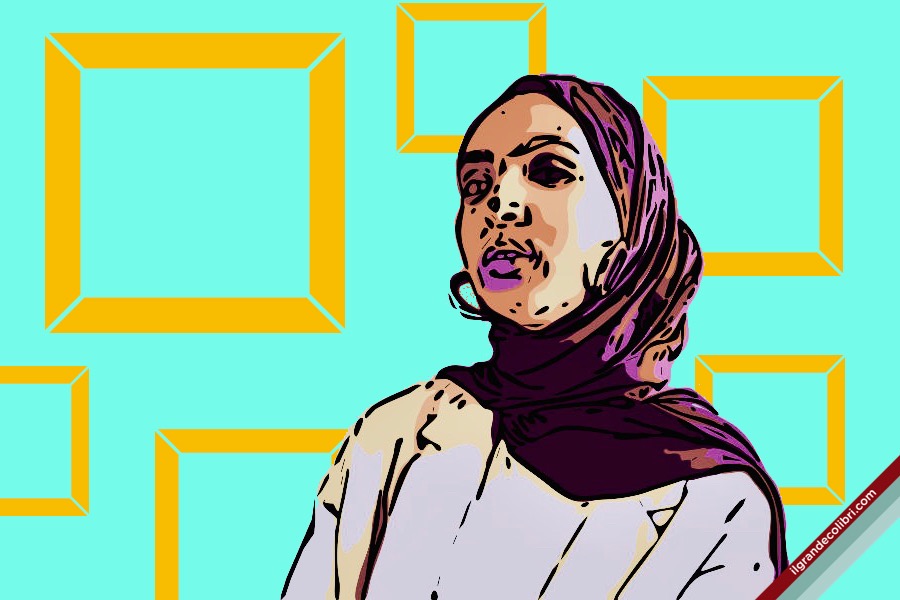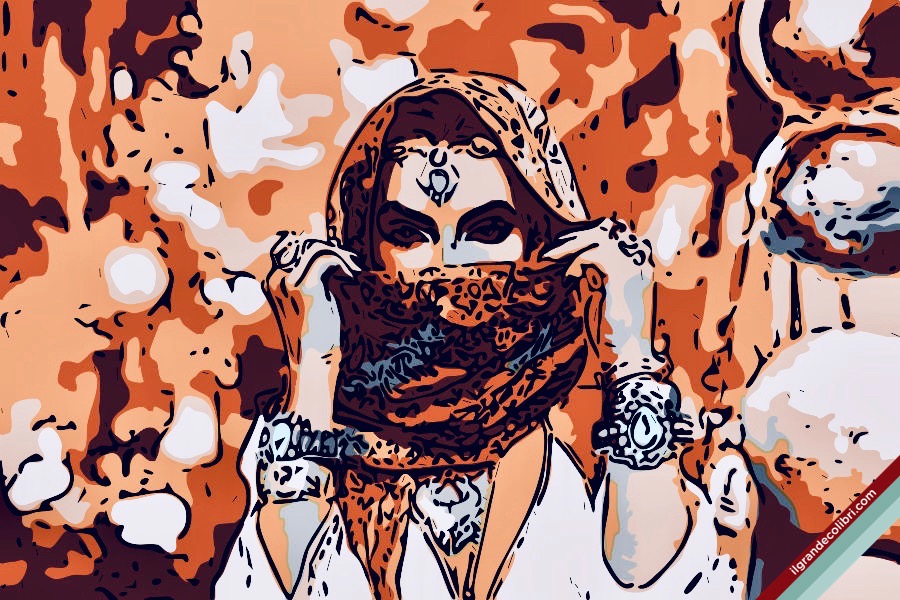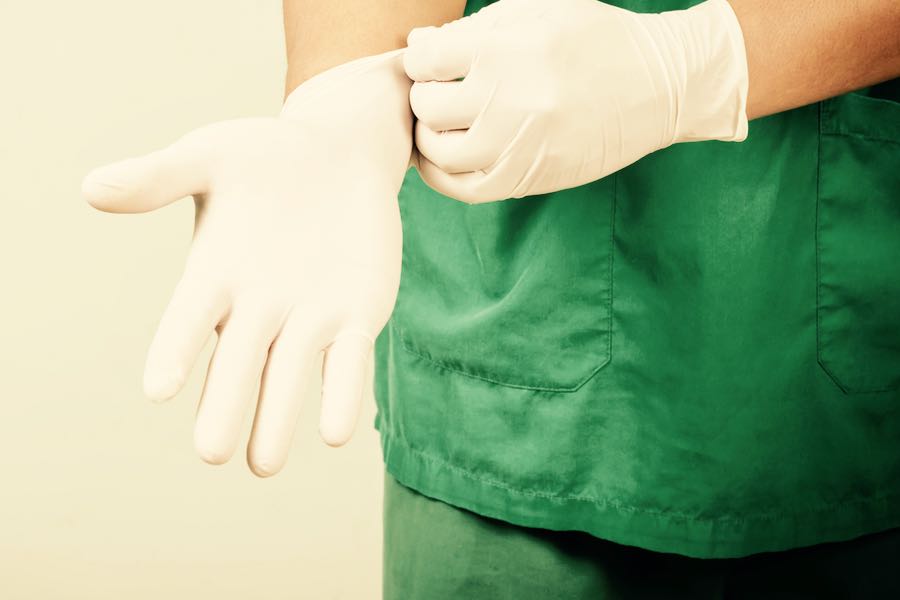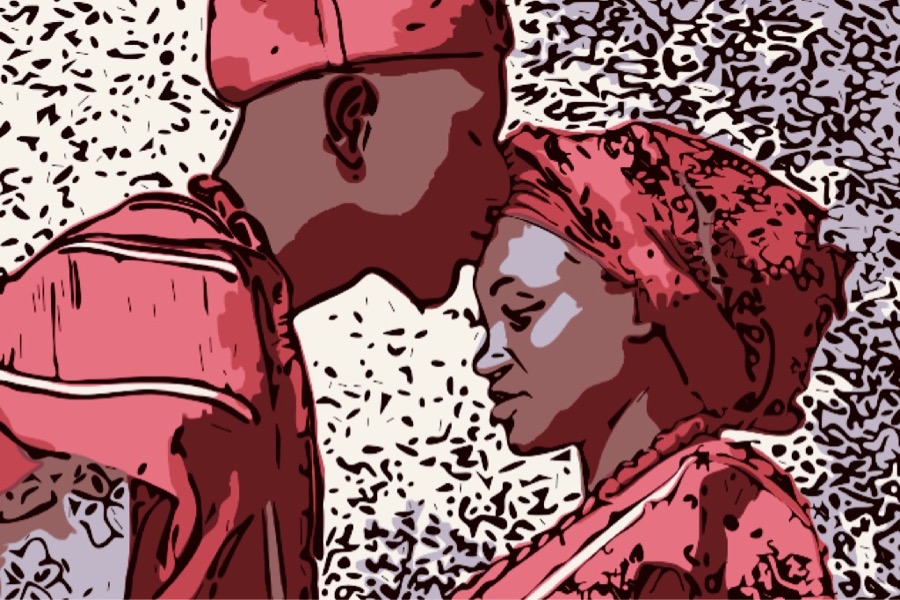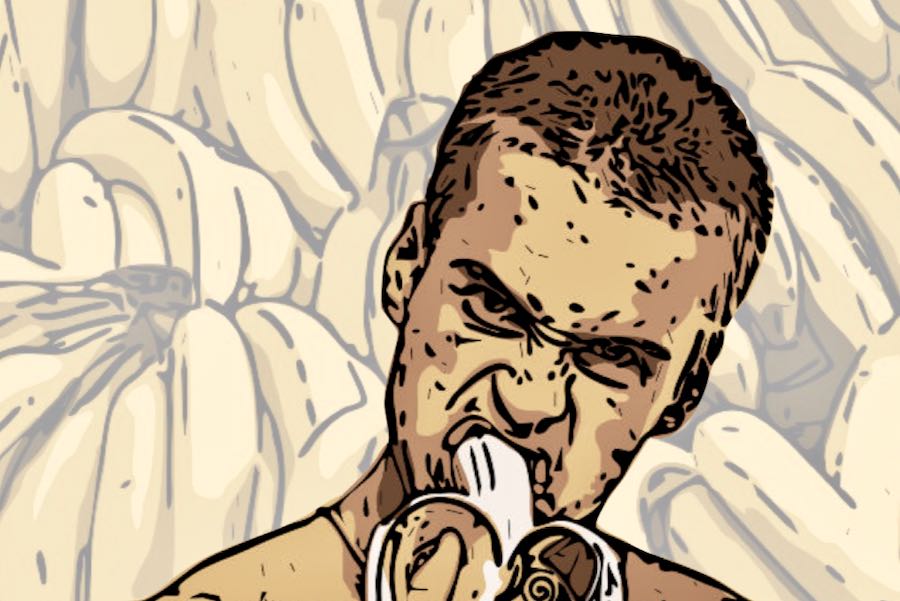“Are there lesbian and bisexual women in Morocco?”: I have been asked this question by so many people in Italy, in so many places: queer clubs, women’s dating apps. I still get asked even in organizations and in public offices. There are actually social operators, working every day with migrants or refugees from all over the world, who cannot believe, accept or understand a same-sex relationship between two African women. We Moroccan lesbian women do not like to be asked this question. It is like a kick in the guts: on the one hand it’s offensive for our culture and our Country, on the other it denies our sexual orientation.
Clearly, there are lesbian and bisexual women all over the world, in any ethnic group and in any religion. Some women choose to define themselves using these categories, others don’t: many Arab women prefer to use the word “queer” or Arabic terms. The fact that people in Italy do not meet in their daily life Moroccan, Arab or Amazigh (Berber) women who identify as lesbians or bisexuals does not mean that they do not exist! Of course, the fact remains that they hide because of social and cultural issues related to traditions, or because they value privacy and do not want to share with everyone information about their private lives or something they consider intimate.
Conservative society
We all know that Moroccan society is conservative: when I used to live in Morocco, a girl having a boyfriend and dating him without the parents’ consent was a problem itself, especially for Muslim families that cherish traditions and do not accept their daughter having a free sex life. In Morocco, still today Muslim women are required to remain virgins until marriage. That means that they cannot live together with their partner as in Italy, but also premarital relations between a man and a woman are forbidden by law, and sometimes the husband’s family asks for a medical examination of the wife-to-be to get a certificate of virginity before the wedding.
This means that girls in Morocco do not have much of a choice: they cannot do as they would in Italy where, if things do not go well, they can split up and move one. Also, a divorced woman is looked down upon by society and they have a hard time to remarry, for they are viewed as responsible for the end of their previous marriage.
Women defying the rules
Also, I have known women who do not follow these rules, perhaps because they come from moderate or more modern families that do not care for social and religious traditions. There are even free women who do not accept the rules of family and society and choose to live on their own, independent, so that they can lead their own private life without being judged and criticized. This is why many women cut ties with their families, move to another city and start a new life with new people.
Lesbian and bisexual women in Morocco mainly come out in their college years, when they move to another city to study and, by living in big cities like Casablanca, far from their families, they can experience and learn about their sexuality. Also, they are older, they have matured, and can take their own decisions, make choices, and come out as their true selves.
Hard to be visible
Some lesbian or bisexual girls have been attracted to a cousin, friend, or neighbour. The matter, though, remains secret and hidden and this “acquaintance” continues until they decide if it’s serious or just an affair. Some girls do not look for a serious relationship with another woman but just an adventure, because they believe that only a man and a woman can be in a committed relationship and grow a family and have children. Nonetheless, lesbian and bisexual women still are attracted to other women and have bisexual needs, with no wish for a lasting relationship.
While it is difficult to see a lesbian or bisexual female couple in Morocco, every now and then a scandal breaks out, e.g., a video of two girls kissing is posted on YouTube or a photo of two women intimate with one another is posted on Facebook. A few years ago, two girls who were photographed kissing were sent to prison and got out after a while, when acquitted.
Flee to Europe
There also gay-friendly spots and clubs attended by lesbians in Morocco, and girls use also Facebook to meet and set up dates in full privacy. When I chat with other lesbian or bisexual girls living in Morocco, they often say that they feel guilt, shame, and fear to express themselves. Whereas girls who live between Europe and Morocco are usually braver and more relaxed: I think that our environment, our family, and our level of self-acceptance and self-esteem have a major influence on that. Also, to be able to talk about our sexuality and have an LGBTQIA (lesbian, gay, bisexual, trans, queer, intersex and asexual) support network means a lot.
I also know of lesbian activists living in Morocco: they are very brave and out with everyone. Unfortunately, they are the target of homophobic threats and attacks. So many LGBTQIA people who started activism in Africa, after some time had to flee to Europe.
Side notes
As a side note, I would like to dispel the myth that all women in Morocco are Muslim and Arab. Surely, the majority of women are Muslim: some wear headscarves, some don’t, that’s a personal choice based on their situation and their relation with religion. In Morocco, Muslim women study and work. Just think that in 859 A.D. in Fez Fatima bint Muhammad al-Fihriyya al-Qurashiya, a Muslim Arab woman, founded what later became the al-Qarawiyyin University, considered by some to be the first university in the world: started as a mosque, all science is studied in this cultural institution, and many scholars in medicine, philosophy and many other disciplines have come out of it.
And, although little is known in Italy, there are also Christian and Jewish women in Morocco. In particular, Jewish people have lived in Morocco for centuries and many were welcomed after they fled Europe: they found refuge in Morocco, built their lives here, have Moroccan citizenship, speak Arabic and practice Judaism.
Finally, not all Moroccan women are Arab: some belong to the Amazigh (also called Berber) people, who was the first people to inhabit Morocco. This people has its own language, traditions, culture, and flag. Berber, which uses a different alphabet from any other language and has a different grammar, has become an official language and some Moroccan schools are now teaching it.
H.M.
translation by Antonio Pauletta
©2021 Il Grande Colibrì
immagini: elaborazioni da Sarah Pflug (CC0) / da Abdelmalek er (CC BY-SA 4.0) / da Pikist (CC0)

